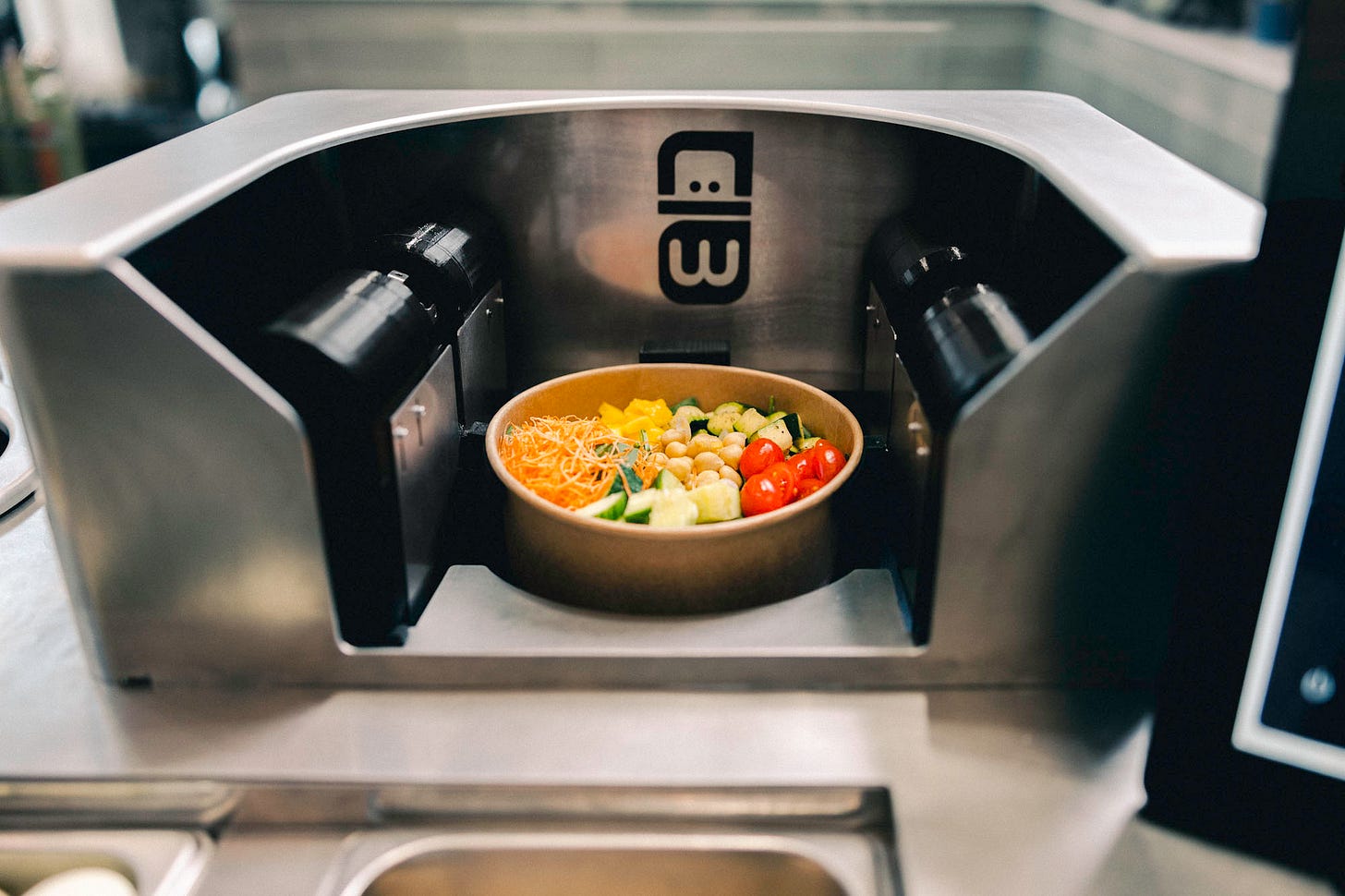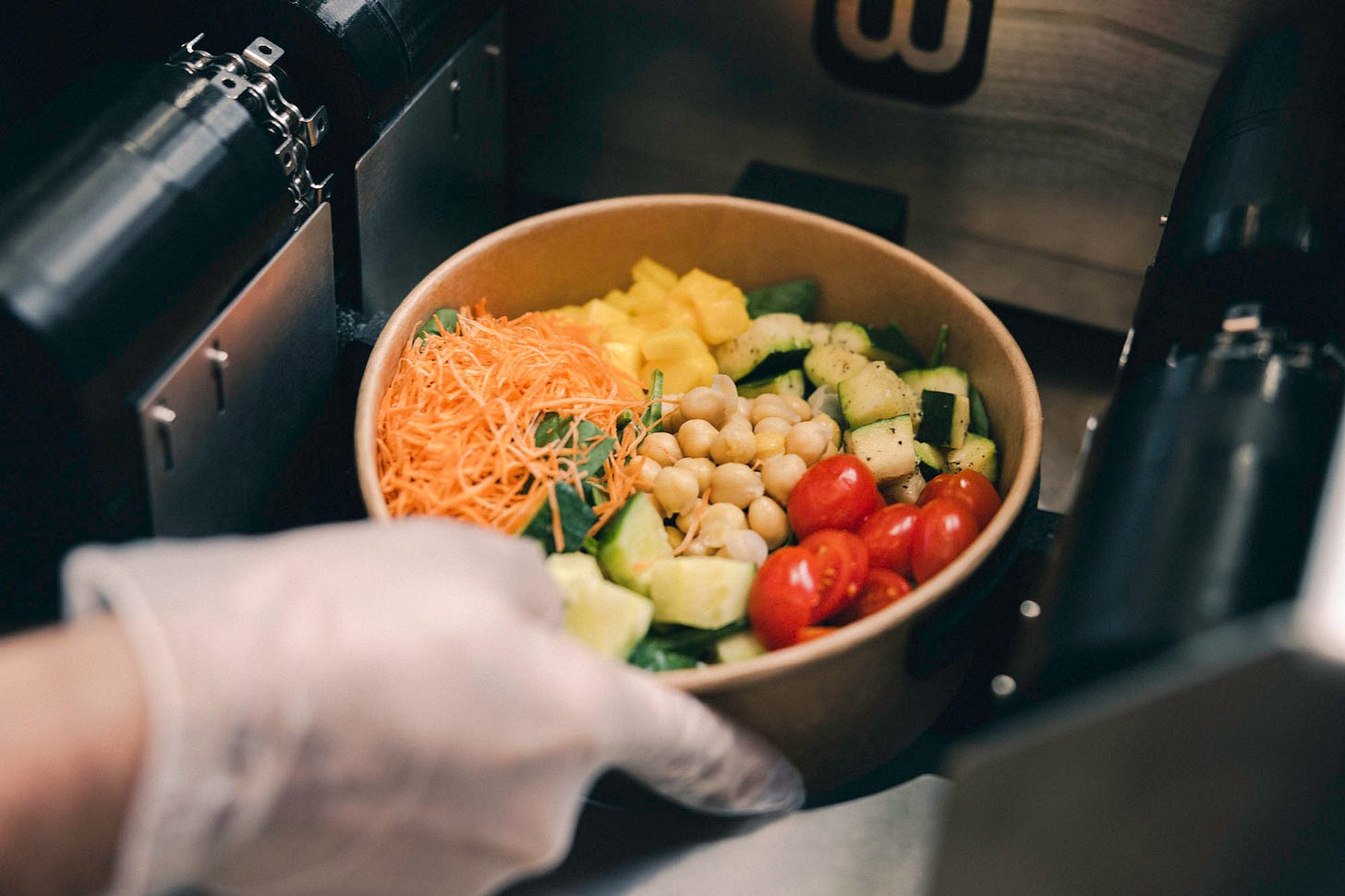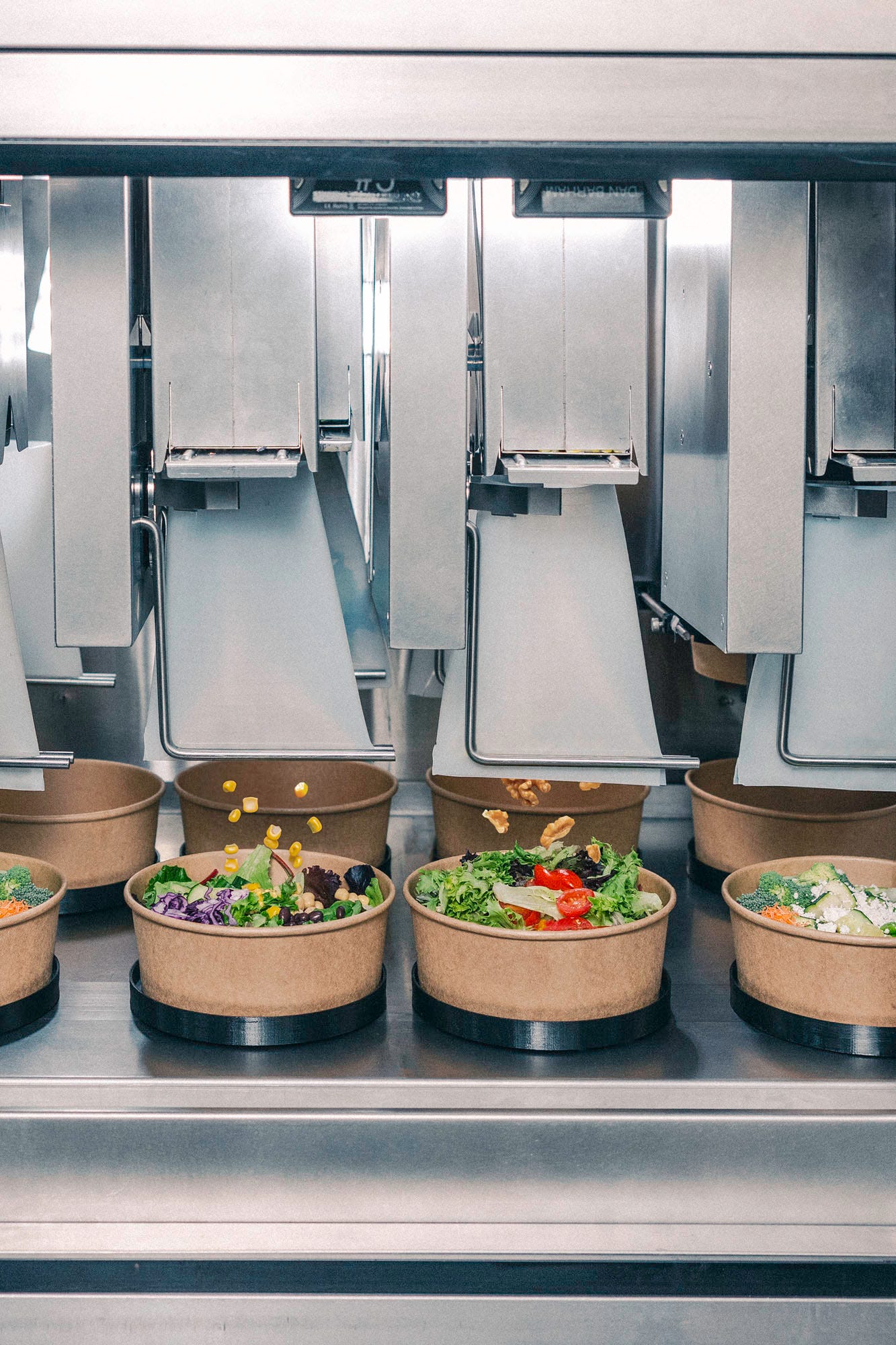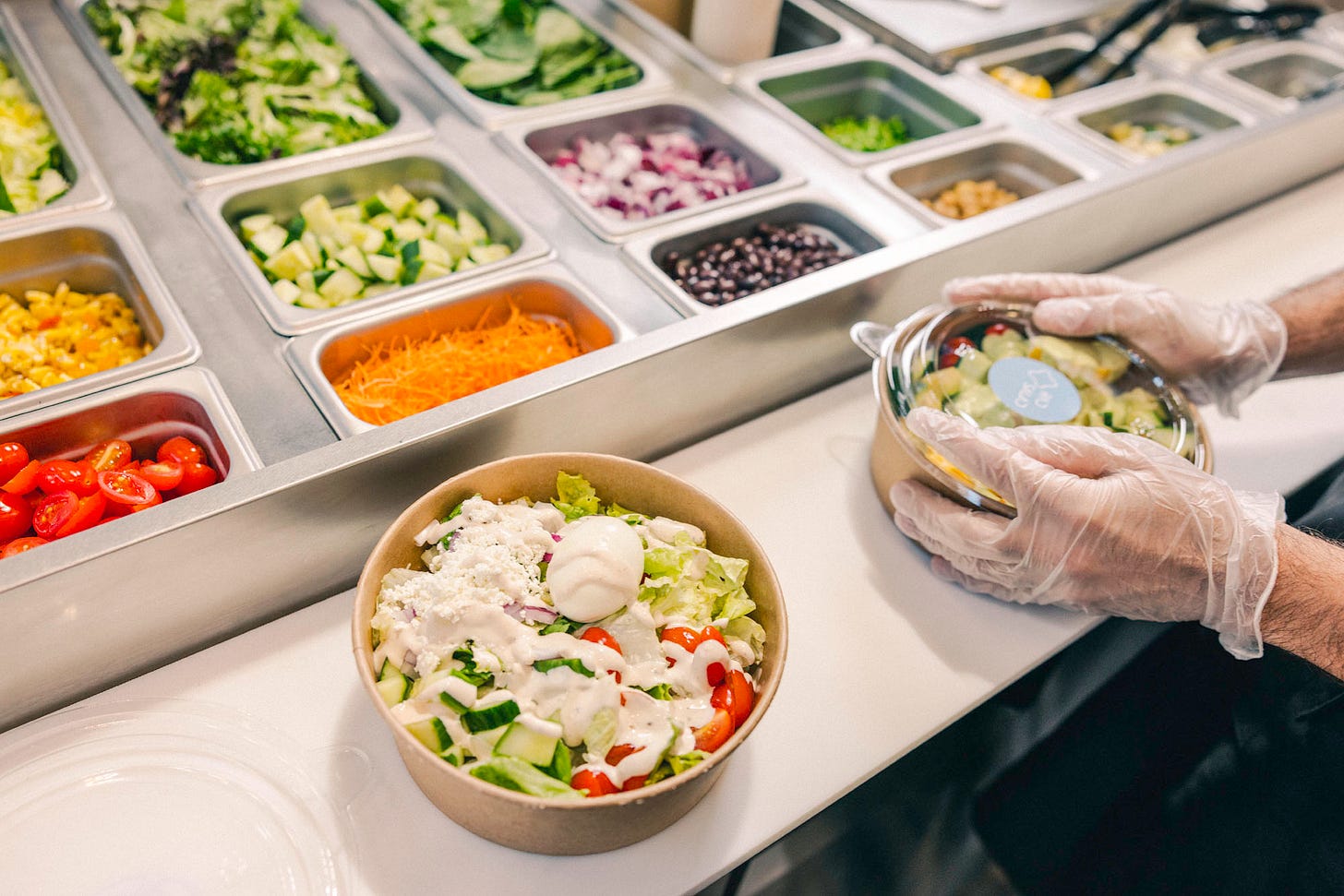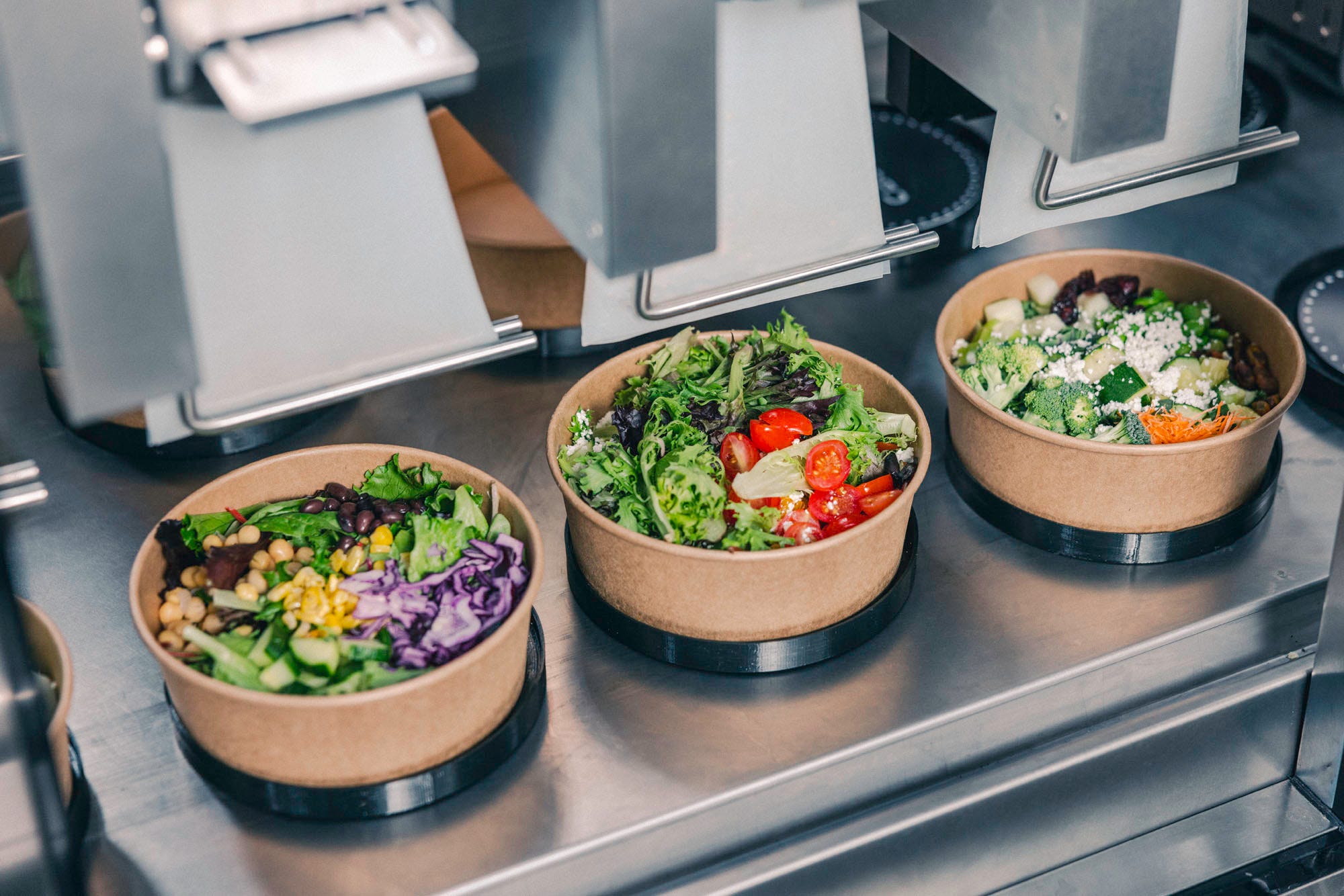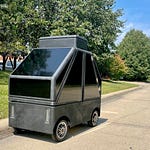In the past few weeks, we’ve seen even more startups and large corporations dive head first into a competition to make the best robotic makeline, as they hope to automate the laborious process of assembling salads and grain bowls. Travis Kalanick’s Lab 37 is cooking up the Bowl Builder, Chipotle is making progress with Hyphen, Sweetgreen has started to roll out its Infinite Kitchens and now Vancouver, Canada-based Cibotica has rolled out a big update to its own machine: Remy.
We checked in with company Co-Founder Ash Nabavi for more details on the company’s progress since they teased their technology last June. He shares his thoughts below:
Founding Team Behind Cibotica:
The journey of Cibotica began with a unique blend of expertise and personal experience in the restaurant industry. As the owner and operator of several food concepts, including a food hall and a BBQ joint, I faced firsthand the challenges that plague many restaurant owners - finding and retaining reliable labor and grappling with the rising costs of food. My background in tech, transitioning from a technologist to restaurateur, made me acutely aware of these operational hurdles.
Determined to find a solution, I reached out to Darius (Daryoush), my co-founder, who brought a wealth of innovation and expertise in technology. Darius, an inventor and the patent holder of multiple technological inventions such as smart insoles and THC breathalyzers, was the perfect partner to tackle the technical challenges I was facing in the restaurant industry.
Completing our founding team was Soroush, an old friend and a seasoned entrepreneur in the robotics field. With a rich history of leading teams behind projects like the first Canadian security robot and an autonomous UV inspection robot, Soroush’s expertise in robotics was invaluable. Holding a Master's degree in Mechatronics Engineering from SFU, he brought the technical prowess necessary to realize our vision.
Together, we formed Cibotica with a shared mission: to tackle the challenges of the restaurant industry using automation. Our diverse backgrounds - a mix of restaurant management, technological innovation, and robotics expertise - uniquely positioned us to create solutions that could transform the way restaurants operate.
Goals with Remy:
Our goal at Cibotica, which spurred our creation, has always been to assist those in the restaurant industry because we've experienced these challenges firsthand. As we delved deeper into this venture, we realized that despite the immediate need for help, the restaurant industry is often slow to adopt new technologies, and significant change cannot occur overnight. With this understanding, our focus shifted towards developing a solution that is non-intrusive, comfortable for restaurateurs to use, and requires minimal disruption to existing operations. Our vision with Remy is to subtly integrate automation in a way that supports and enhances current restaurant workflows, addressing key issues while respecting the pace at which the industry evolves.
What’s New with Remy:
We've made significant upgrades to the model of Remy we recently deployed. It's now faster and capable of automating a broader range of ingredients. We've figured out dispensing a diverse array of ingredients, from leafy greens to cheese and other complex items. However, our most notable breakthrough has been developing Remy as a solution to retrofit existing fridge make-lines. Our technology is so compact and adaptable that it can integrate into virtually almost any kitchen fridge, transforming it into a smart, automated assembly line. This innovation has sparked considerable interest from refrigerator equipment manufacturing companies.
We are now exploring partnerships with major equipment manufacturers who have shown considerable interest in incorporating our solution into their existing makelines. This strategy is distinctive because it simplifies our distribution process. We can significantly reduce production time and lower customer acquisition costs. Our partners facilitate sales through their established channels. This strategy enables our partners to utilize their existing distribution networks to deliver our product, thereby broadening our market reach and our impact in the industry.
Ideal Customer:
Initially, we operated in stealth mode, focusing intently on developing our core dispensing technology. Over the past year, however, our outreach has expanded significantly. We have engaged in discussions with numerous quick-service restaurants and have planned deployments for early next year. Yet, the uniqueness of our core technology has garnered attention beyond just restaurants. We're seeing substantial interest in our standalone dispensing technology from fresh food processing centers, meal kit companies, and even other robotics companies who are facing challenges with accurate food dispensing for their innovations. This broad spectrum of interest highlights the versatility and potential of our technology across various sectors.
Deploying Remy in Vancouver’s Food Hall:
With this launch at our food hall in Vancouver, our primary objective is to gain comprehensive insights from our technology. We aim to closely monitor KPIs and demonstrate tangible savings for restaurateurs. By showcasing how our system translates into actual cost reductions and operational efficiencies, we intend to illustrate the direct benefits to other restaurant owners. This deployment also serves to highlight how employees can benefit from streamlined operations, as it significantly reduces stress and repetitive tasks from their daily workflow. Moreover, we're keen to showcase the synergy between a cobot and human staff, and what this integration means for customers, businesses, and employees in a practical, real-world environment.
Future of Food Automation:
The advancements we've seen in recent years, especially from various robotic companies tackling specific processes, underscore the need for greater collaboration. These emerging technologies require a common platform to function synchronously. Moreover, we observe that food brands are cautious about integrating advanced systems into their operations. In the restaurant industry, the shift shouldn't be a revolution that completely overhauls old systems, but rather an evolution. This evolution involves food brands and tech companies working together to address these challenges. Throughout this transition, one aspect remains paramount: customer experience is always a priority. We foresee broader applications of technologies like Remy across diverse food service sectors, sparking innovation and driving efficiency.


